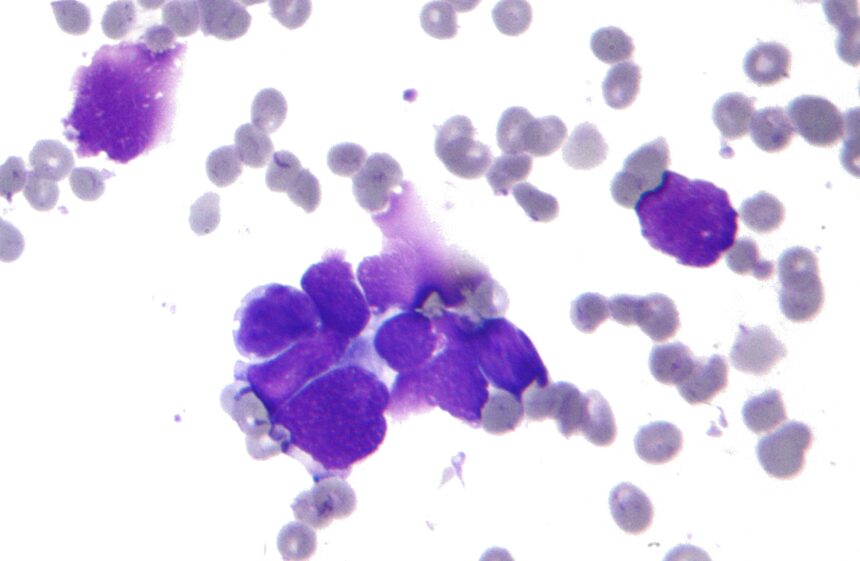Seven countries have launched the first ever mRNA lung tumor vaccine trial, marking an important breakthrough in cancer treatments.
The BioNTech-developed BNT116 vaccine is designed to fight non-small-cell lung cancer, the most common type of disease.
The vaccine aims to stop lung cancer from recurring by instructing the body’s immune system to destroy the cancerous cells. This gives patients with poor survival rates at advanced stages a new hope.
The symptoms of lung cancer and new treatment options
Globally, lung cancer is the most common cause of cancer related deaths. It accounts for approximately 1.8 millions fatalities every year.
Because of its aggressiveness, advanced lung cancer has a particularly poor prognosis.
It is important to detect lung cancer early symptoms such as chest pain and persistent cough.
These signs are not always recognized until lung cancer has progressed. This highlights the need for effective new treatments, such as the BNT116 vaccination.
The BNT116 vaccine is effective against non-small lung cell cancer
BNT116, a new drug that targets lung cancer, could change how the disease is treated.
The vaccine uses a mRNA-based technology that has been proven to be effective with COVID-19. It works by providing the immune system tumor-specific marks, enabling them to eliminate cancerous cells and spare healthy tissue, unlike traditional chemotherapy.
Phase 1 of the lung cancer clinical trial is currently being conducted at 34 sites in UK, US and Germany. It’s also underway in Spain, Turkey, Hungary and Poland.
Six sites in the UK are involved, and the first patient received the vaccine only last week.
About 130 lung cancer patients will be enrolled in the trial, with a range of stages from early cases to more advanced and recurrent ones.
The vaccine will be administered in combination with immunotherapy to improve the immune system and the survival rates of lung cancer patients.
Janusz Racz (67 years old) is a scientist who lives in London. He was the UK’s first patient to be vaccinated with BNT116.
Racz, who was diagnosed with lung cancer back in May of this year, wanted to take part in the study not just for the personal benefit but to also contribute to medical advancement.
The treatment plan includes multiple injections spread over six weeks and then continued dosages for about a year.
Racz’s participation in this trial highlights the importance of patients participating in the development and testing of new therapies.
Experts’ opinions on lung cancer vaccine trials
The trial has been hailed as a success by Dr. Siow-Ming Lee, a leading oncologist at University College London Hospitals.
We hope that this extra treatment will prevent the cancer from returning. “Lung cancer is a disease that often returns after radiation and surgery, but this mRNA vaccination could give us the additional boost we need to increase survival rates,” said Dr. Lee.
The ultimate goal, he said, is for this lung cancer vaccine to become a part of standard treatment in every country.
The NHS has launched a wider initiative to help patients get into cancer trials that are innovative. This move is being hailed as a revolution in the battle against cancer.
This scheme aims to give eligible patients early access to new promising therapies that could alter the course of their illness and improve outcomes.
Lord Vallance (UK’s Science Minister) highlighted the importance this trial. He noted that it has the potential of saving thousands of lives every year.
He said, as reported by The Guardian: “We support our researchers to ensure that they remain an integral part in projects that lead to groundbreaking therapies such as this.”
Researchers are focusing on the effectiveness of the vaccine in preventing lung cancer from recurring as the trial advances.
This could be a breakthrough in lung cancer treatment, giving patients new hope around the world.
Racz considers the completion of his treatment, and the return to running to complete the London Marathon a personal triumph.
The story of his life is an example of the determination and hope that drives medical advances. Researchers, doctors, and lung cancer patients are all working towards a better future in which survival rates for lung cancer will be dramatically increased.
The ICD published the following post: Lung Cancer vaccine trials launch: What do you need to Know about BNT116?
This site is for entertainment only. Click here to read more






